As I was finishing my essay about how my voice sounds like bare feet on gravel, I thought about how our voice becomes incarnate when our breath sings across our vocal cords, driven by our heart and mind because we want to tell something.
But what about God’s voice? What does it sound like? I know we can hear his voice as a nudge, or a thought in our mind, or a Bible verse or a friend speaking a word that makes our heart leap up. Right now I'm thinking of how Psalm 29 says: “The voice of the Lord flashes forth flames of fire. The voice of the Lord shakes the wilderness; The Lord shakes the wilderness of Kadesh. The voice of the Lord makes the deer give birth and strips the forests bare and in his temple all cry Glory!” (Ps. 29: 8 – 9).
And there's Psalm 104, "Oh Lord, how manifold are your works! In wisdom have you made them all; the earth is full of your creatures" (Ps. 104: 24).
I think of the moon shining through leaves looking like a creature right close, an angel, alive. I think of the firefly that lands on my sandal, and how I look out and see them close to the grass, flickering. I remember the night I stepped outside to see them arrayed in the forsythia bush and apple tree and grass. I'd never seen so many. Mesmerized I stepped wrong on a wet, wooden step, slamming down on my hip, stung and bruised, with Bruce upstairs asleep.
I think of the clouds building, bright as the linen of the saints, but gathering their bottoms, hunkering in close together to make rain. I think of Morgen’s pleasure when I speak to her as we drive through fields of clover, our milk house bees well fed, and the barn swallow swooping, as if he is dancing with us, as if he is Little Bird, a fledgling swallow we rescued two years ago, come back to swing joyously inviting us to dance.
I think how animals, even the tiniest bugs, perceive the world in ways we can hardly imagine.
Ed Jong in An Immense World describes these myriad ways. He leads me right to wonder and awe. He notes how Alexandra Horowitz found that dogs sniffing on walks is vital to them. He says, “To a dog a simple walk is an odyssey of olfactory exploration” (21). So I let Omalola sniff the roadside when we walk. Another researcher Ronald Kroger ran tests to see if dogs’ noses are also infrared sensors picking up on their prey’s heat as well as smell. His test seemed to indicate this is so (154 – 155).
Even the smallest of creatures like a threadworm knows how to sense heat and will make a beeline to a warm body (146). The mantis shrimp sees circularly polarized light, a very rare state of light, because other mantis shrimps give off that kind of light, so they can mate. Jong comments, “Perhaps, then, mantis shrimps communicate using a form of light so secretive that only they can see it” (114).
Jong writes about the emerald jewel wasp that has a stinger that can sense where a cockroach’s brain is in order to paralyze it, and eventually lay eggs in its body for its young to feast on. That stinger is able to perceive what a cockroach’s brain feels like. It will stun its prey and lead it like a person might lead a horse to its lair.
(When Darwin came across this sort of cruelty in the animal world, he rejected his Christian faith because he couldn’t believe a good God would create such a cruel animal. In Dominion Tom Holland quotes him as saying, "I cannot persuade myself that a beneficent and omnipotent God would have designedly created the Ichneumonidae with the express intention of feeding within the living bodies of caterpillars" (439).
There’s a beetle designed to fly toward fire. Jong writes, “Arriving at a fire, the beetles have perhaps the most dramatic sex in the animal kingdom, mating as a forest burns around them. Later, the females lay their eggs on charred, cooled bark. When the wood-eating grubs hatch, they find an Eden” (142).
It’s as though somebody played as they created the animal world , delighting in the intricacies that no one would notice, except now, maybe when twenty-first century scientists follow their curiosity.
Then if we look for God’s voice way down deep, inside cells and smaller, we find it. The other day I listened to biologist Stephen Meyer in “Where Darwinism Breaks down, an interview with Jonathan Pageau", Here are a few things he said that took me by the hand and invited me to wonder.
Meyer says, “The argument I make in a book called Signature in the Cell is that whenever we see information in a digital or alphabetic form, as we do at the foundation of life, and we trace that information back to its source, we always come to a mind, not a material process.”
He continues by saying, “I could show you a wonderful picture of the circuitry that controls animal development. It's called a developmental gene regulatory network. When the scientists at Caltech mapped this out, the way that genes and gene products interacted to control the way cell division occurred and the way different gene products were expressed at different times as the organism was going through cell division from one to two to four to eight to 16, et cetera.
"They mapped out these relationships between the genes and the gene products controlling the expression of genes at just the right time and just the right place and just the right cells and cell types. They mapped it out and it looked like a circuit, like an integrated circuit, only it wasn't a circuit controlling the flow of electricity as much as it was controlling the flow of information. Look at that and you look at that and then they discovered something else, that the circuits, the systems, the molecules that are part of this system, the system cannot be perturbed without shutting down animal development.”
Meyer's work in intelligent design calls into question evolutionary biology, which Charles Darwin set in motion, a theory that denied the need for God.
When I read and hear these things, I’m knocked back in awe of just who Jesus is. His voice is more than a man’s voice speaking in parables or beatitudes. His voice spoke the intricacies of creation, the playfulness of design. Saint Paul says, “He is the image of the invisible God, the firstborn of all creation. For by him all things were created, in heaven and on earth, visible and invisible, whether thrones or dominions or rulers or authorities—all things were created through him and for him. And he is before all things, and in him all things hold together” (Col. 1: 15 -17).
I think back to the thunder and lightning and the fiery pillar and how at times God’s anger burned, until Moses begged him not to destroy his people, because God would destroy his own honor. I think how on that fiery mountain God gave us the rules to live by that show us up--how we can’t or won’t live by them, how we choose death, not life, and how we need Jesus to make us right. This Jesus spoke a greater word than the fire and sounding trumpets when Moses climbed into that fury.
The Word also speaks to us in the fully human, fleshed out Jesus, who knows what it’s like to live in a body, from the blood and feces of birth to the blood and feces of death. But I also wonder if we silence Jesus, by not calling for his voice in other people, especially the difficult ones, the ones whose presence stings. Albert Rossi in Becoming a Healing Presence says, “In many of these men and women—in the malicious and the criminal—Jesus is imprisoned. Deliver Him in them” (72).
I think of the apocalyptic image of Jesus on a white horse returning to bring in the kingdom, his eyes ablaze, his robe dipped in blood, his blood. His saints ride behind him. “From his mouth comes a sharp sword with which to strike down the nations, and he will rule them with a rod of iron" (Rev. 19: 15, ESV). I’m told this is no missile launcher, but the double edged sword, that is so finely tuned it can cut muscle from bone, the same word that flung out the worlds when God said let there be and light and oceans and fish and crawling animals and wild animals and farm animals came to be. That voice leaned down and breathed breath into Adam.
These days I’m gobsmacked with awe. While I long for Jesus' return, while I long to meet him face to face, I know my response might be like Orual in C.S. Lewis’ Till We Have Faces who meets her sister’s lover, when she forced her sister to shine the forbidden light on his face. “The great voice, which rose up from somewhere close to the light, went through my whole body in such a swift wave of terror that it blotted out even the pain in my arm. It was no ugly sound; even in its implacable sternness it was golden. My terror was the salute that mortal flesh gives to immortal things” (171).
If Jesus returns on that gleaming white horse, I might find myself crawling into the mountains to put rock between myself and the brightness of his glory. The prophet Isaiah says that when he returns the sun will be as bright as seven days piled together and the moon like the sun. I want to be sheltered by the promise, “Now to him who is able to keep you from stumbling and to present you blameless before the presence of his glory with great joy, to the only God, our Savior through Jesus Christ our Lord, be glory, majesty, dominion, and authority before all time and now and forever. Amen” (Jude 24, 25). These words, this voice, are the crag and stronghold he says will be my refuge.
Works Cited
Andraski, Katie. "Little Bird A Meditation on Kindness WNIJ Perspective". katieandraski.com. 7 Sept. 2020. Accessed 6 July 2024.
Holland, Tom. Dominion: How the Christian Revolution Remade the World. Basic Books, 2019.
Holy Bible English Standard Version. Crossway, 2016.
Lewis, C. S. Till We Have Faces: A Myth Retold. B. Eerdmans Publishing Co, 1978.
Pageau, Jonathan. “The Symbolic World: 347 - Stephen Meyer - Where Darwinism Breaks Down.” The Symbolic World, 24 June 2024, Accessed 28 June 2024.
Rossi, Albert S. Becoming a Healing Presence. Ancient Faith Publishing, 2021.
Yong, Ed. An Immense World: How Animal Senses Reveal the Hidden Realms around Us. Random House, 2023.




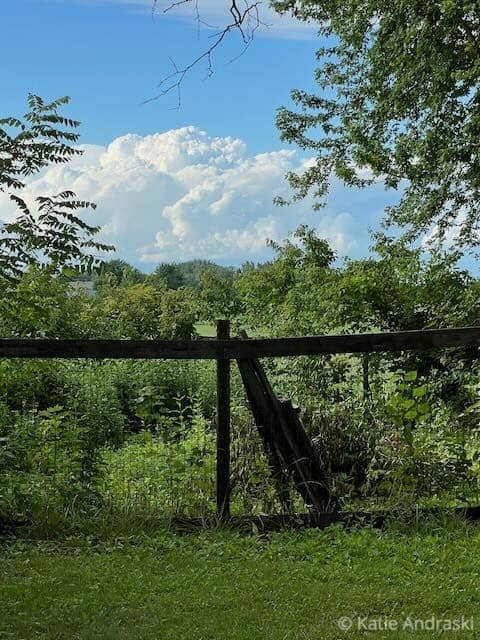
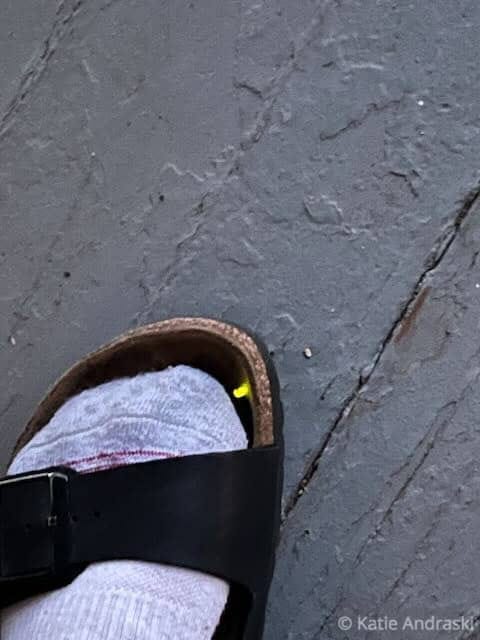
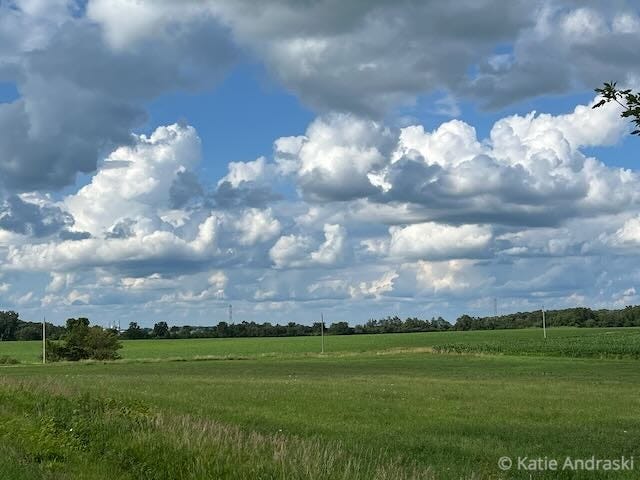

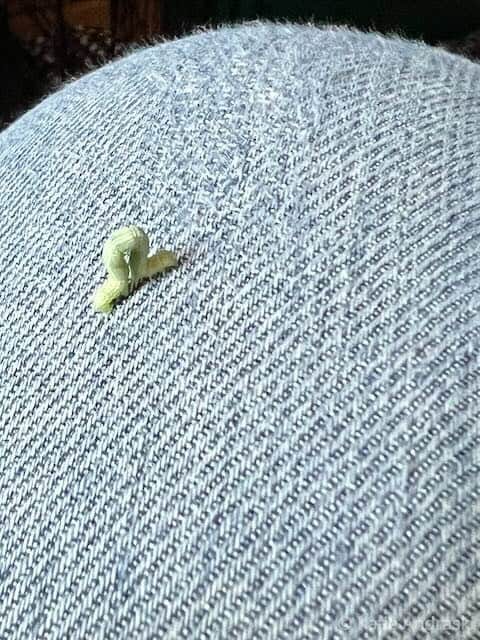

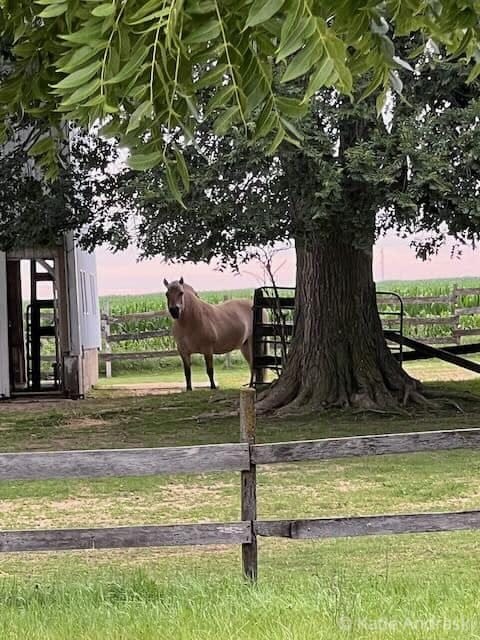
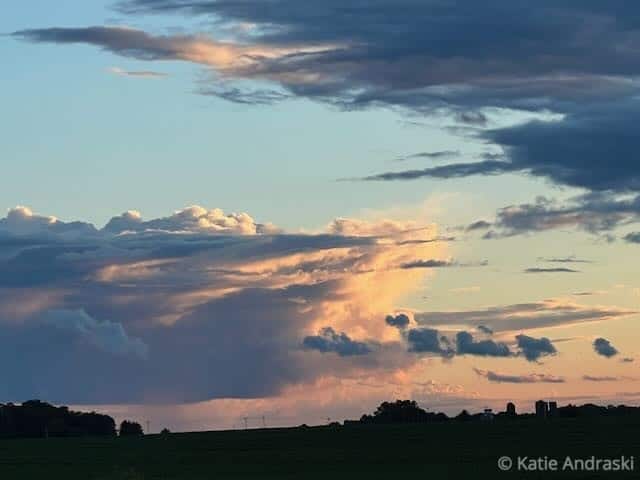



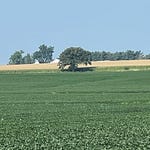


Share this post